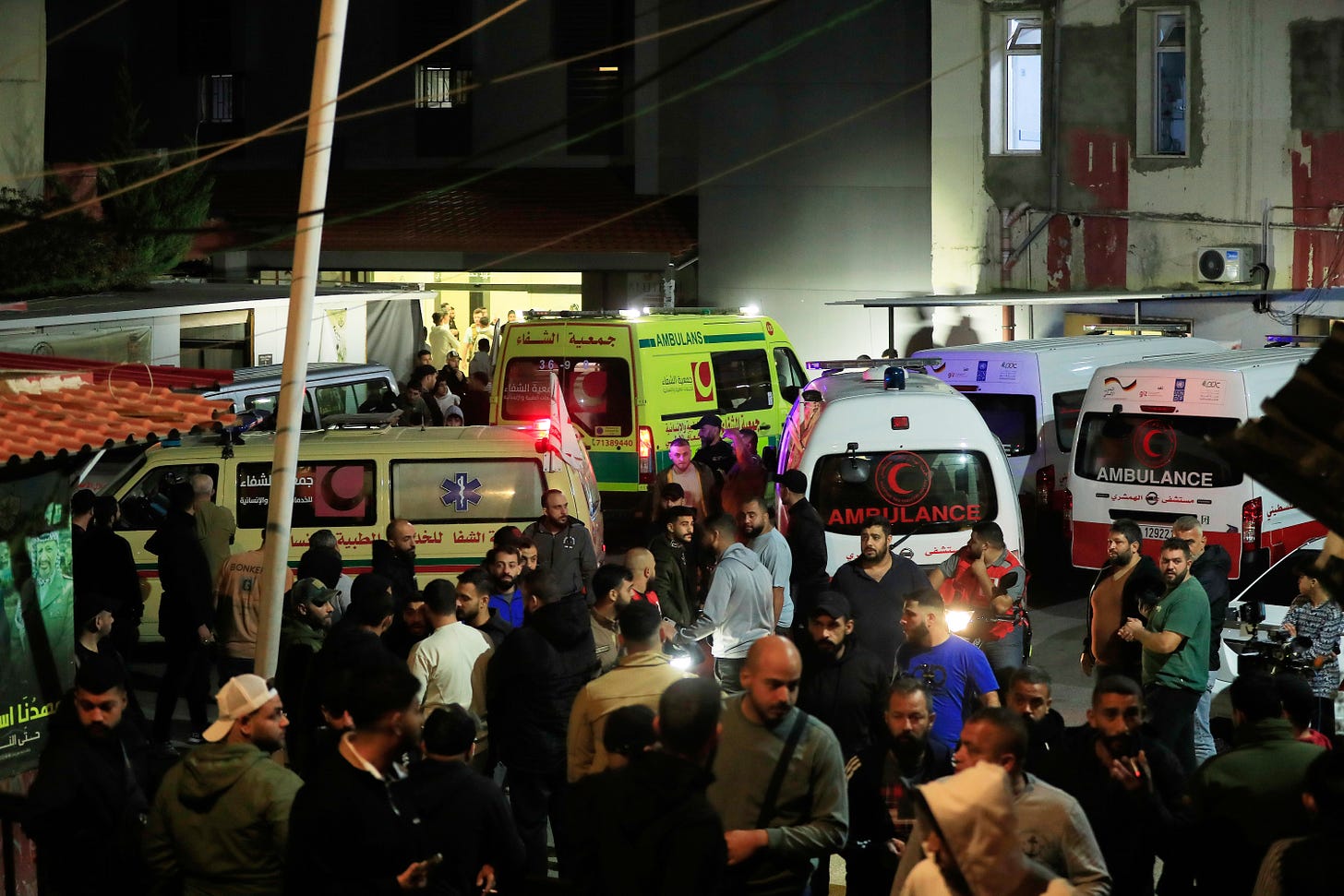The Trap of the ‘Decisive Blow’: On the Tragedy of Ein el-Hilweh
Why do we keep believing that the next airstrike will be the one that brings peace? A personal reflection on the Ein el-Hilweh bombing, the seductive lie of ‘security,’ and the human cost of political stalemate.
The Echo of Falling Masonry
I find myself staring at the reports from southern Lebanon, trying to parse the difference between this airstrike and the hundreds that came before it. Ein el-Hilweh, a name that translates to ‘Sweet Spring,’ has once again become a theatre of fire. Thirteen dead. A Hamas compound targeted. It feels sickeningly familiar, doesn’t it? We are watching a tragedy performed on a loop, and the script never changes. The actors believe that this time—this specific application of force—will alter the equation.
It reminds me of the warning issued by the philosopher Simone Weil regarding the nature of violence. She understood that force doesn’t just act on the victim; it intoxicates the wielder.
Force is as pitiless to the man who possesses it, or thinks he does, as it is to its victims; the second it crushes, the first it intoxicates. The truth is, nobody really possesses it.
— Simone Weil, ‘The Iliad or the Poem of Force’
We are witnessing this intoxication in real-time. The belief that security can be purchased with high explosives is a potent drug, and it seems the entire region is addicted.
The Illusion of the Solution
There is a desperate desire in all of us to believe that there is a ‘solution’ to the Middle East that involves a decisive victory. We want to believe that if the ‘bad guys’ are just hit hard enough, they will vanish. But Ein el-Hilweh proves the lie. You cannot bomb an idea, and you cannot secure a border by creating a wasteland on the other side. The camp itself is a symbol of this failure—a ‘temporary’ shelter that has lasted for generations, breeding despair and radicalism in equal measure.
The true tragedy is not just the loss of life, but our collective resignation to the idea that this violence is inevitable.
We have accepted a definition of peace that is nothing more than the pause between reloadings. This is not peace; it is a siege mentality masquerading as strategy.
Go Deeper
Step beyond the surface. Unlock The Third Citizen’s full library of deep guides and frameworks — now with 10% off the annual plan for new members.
Breaking the Cycle
So, how do we step out of this? It requires us to stop cheering for the ‘surgical strike’ and start mourning the patient. It requires a shift in how we perceive power. Hannah Arendt, who saw the darkest depths of the 20th century, made a distinction that we have forgotten today: the difference between power and violence.
Power and violence are opposites; where the one rules absolutely, the other is absent. Violence appears where power is in jeopardy, but left to its own course it ends in power’s disappearance.
— Hannah Arendt, ‘On Violence’
Every airstrike is an admission that true power—the power of political legitimacy, of shared future, of diplomatic resolution—has failed. If we want to stop the bleeding in places like Ein el-Hilweh, we must stop mistaking violence for strength. We have to demand the impossible: a politics that values the living more than it fears the enemy.



